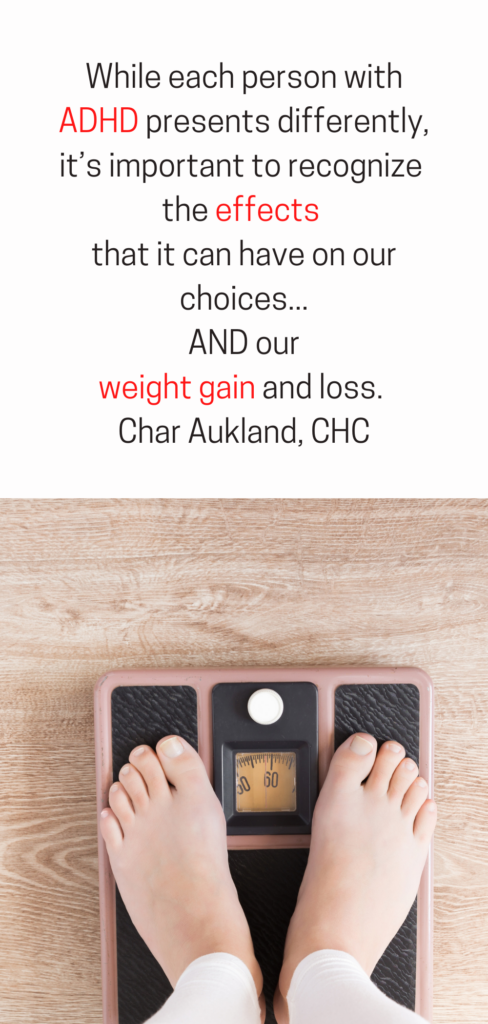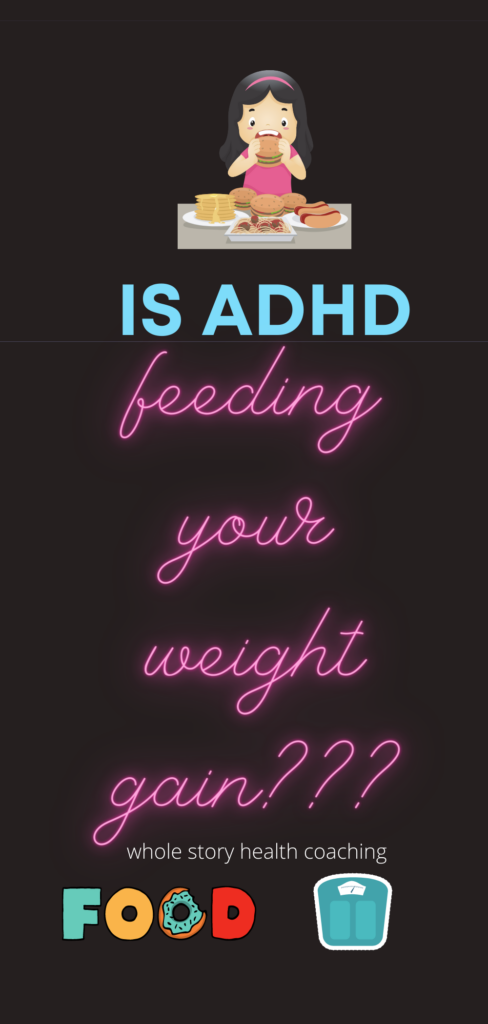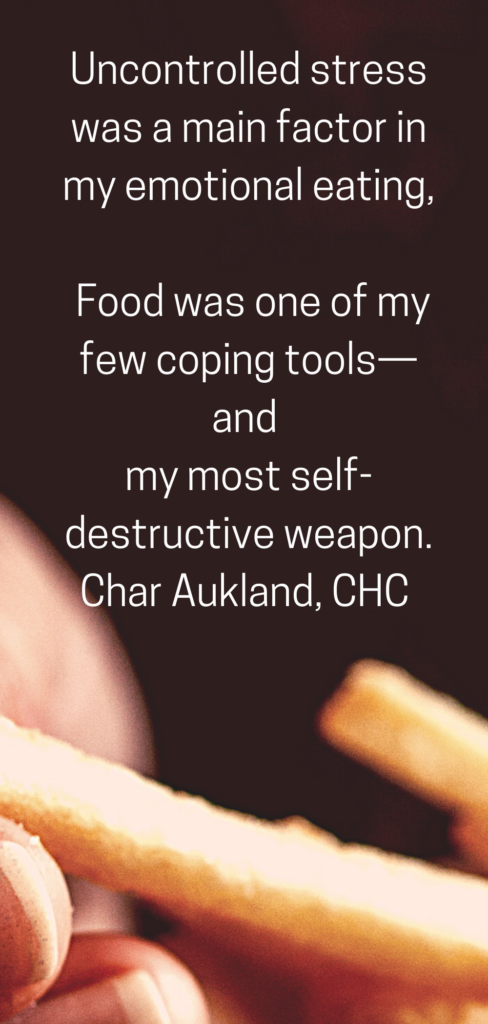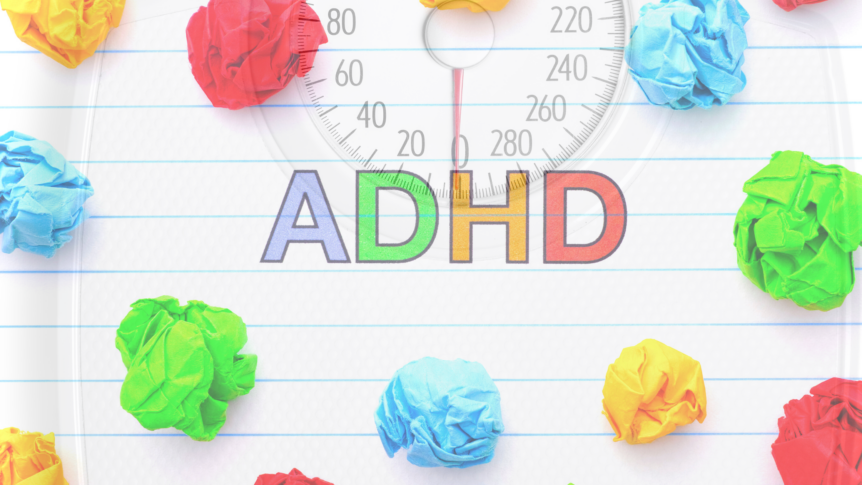Although I was only recently diagnosed, my struggles with ADHD and weight span my lifetime. Looking back, and within, helped me to become aware of so many previously unnoticed patterns.
Thanks to the clarity provided by my ADHD diagnosis, my weight challenges and eating habits finally made sense. I can’t help but wonder how things would have been different, if only I had known sooner.
It’s Personal
In overcoming weight loss struggles, it is important to remember that we each have our own factors that contribute to where we are and which path we choose to take. For that reason, we have to keep in mind that there is no one-size-fits-all approach—or magic pill.
For those that have been diagnosed with ADHD… and those that remain undiagnosed, we fight battles that are felt but unseen.
While each person with ADHD presents differently, it’s important to recognize the effects that it can have on our choices, especially when it comes to matters of weight gain and loss.
Developing an awareness of our unique strengths, weaknesses, temptations, and tools is what will help us to overcome the obstacles on our individual paths.

My ADHD Weight Gain Factors
Without an understanding of our true challenges and a plan, based on our individual needs, we set out on an uphill climb that we are often too tired to finish.
Listed below are just a few of the symptoms that I struggled against—and how I overcame them. My hope is that you are encouraged to identify your struggles, ADHD or not, and learn how to create what works for you.
1. Self-control
I cringe when I hear advice like: just eat less (or put the fork down). For some of us, it’s not that simple. If it were, nobody would be overweight. Many factors go into our choices, like:
- stress
- sleep
- hormones
- social interactions
And that’s just a few of the things we fight—besides ourselves.
To say that I lacked self-control would be an understatement. One day, I sat on the sofa crying and praying about overeating—while eating.
What I didn’t understand was that my compulsions, impulsivity, and my favorite (dopamine releasing) foods were working hand-in-hand—keeping me stuck and addicted.
Intervention
My willpower was weak and my desire to eat was strong. So, I knew that I had to alter my environments. Using this approach, self-control became much less of an issue. After I identified the foods that I struggled to resist, I stopped buying them. If they weren’t near me, I couldn’t eat them or have to resist temptation.
Tip
Take a look around your home, work, and driving environments. Identify the sources of temptation and remove a few of the things that challenge your self-control.
2. Addictive behaviors
Though I didn’t realize it at the time, I was dealing with a food addiction. Since my father struggled with a gambling addiction, I knew to stay away from casinos and typical addictive behaviors, but food never crossed my mind.
According to Eating Disorder Hope, when we consume foods that are high in fat, sugar, and/or salt, certain chemical reactions are triggered in our brains that lead to pleasurable feelings. This described my eating habits, perfectly. In response to life and one trauma in particular, I learned that if I ate certain things, I felt better—immediately. Unknowingly, I began to use food to self-medicate.
Intervention
Since food was my drug and emotions were a powerful trigger, I set out to learn how to regulate the chaos in my mind. This particular intervention included books like, Breaking the Habit of Being Yourself and cognitive behavioral therapy, which provided incredibly helpful tools.
Tip
Pay close attention to when you are eating and why. It’s not always hunger. Often, especially for emotional eaters, there is some level of self-soothing being sought.
Because we don’t consciously make the connection, we set ourselves up for addictive behaviors. Coaching can help you identify hidden areas that are keeping you stuck.
Keep in mind that a therapist may also be an option for issues that go beyond typical health coaching. The goal is overall health, not just weight.

3. Easily stressed
Stress was a main factor in my emotional eating. And, normally, it didn’t take much for me to become overwhelmed. My emotions were chaotic, at best.
Despite having stretches of time when I felt completely normal, there were those times when I rode an emotional rollercoaster. Food was one of my few coping tools—and my most self-destructive weapon.
I don’t fully blame ADHD, but when we go undiagnosed, we are fighting an unseen enemy that has much more control than we recognize.
Intervention
Learning to meditate and becoming self-aware allowed me to finally take charge of my mental clutter. Obviously, with ADHD, meditation wasn’t easy. The key was to find what worked for me.
My favorites were walking meditations and body scans, using the Calm app. Once I understood how to do the basics, I was able to create my own personal “meditations” that were aligned with who I was and what I needed.
Tip
Don’t get lost in trying to navigate “normal” meditation. As someone who thinks nonstop and has a very loud brain, I can honestly say that it is possible. But… I tweaked it to work for me.
For example, when I go for a walk, I may try to find 10 natural colors or listen for 5 different species of birds. As I do this, I also come back to my breathing. In those moments, the chaos of a cluttered mind disappears. As you learn to meditate, make it work for you and with your brain.
You may also be interested in the wealth of options provided by UC Berkley’s Greater Good Science Center, which I wholeheartedly recommend. It has a variety of meditations and mindfulness tips. Find what works for you.

Finding What Works
While it may be tempting to try the latest supplement, diet craze, or medical intervention, addressing the root cause is what gives us the freedom to move forward.
For me, the standard solutions just didn’t work and the excitement always wore off. So, out of desperation, I started creating my own weight loss interventions.
But, getting off the “diet” rollercoaster required me to do the hard work of seeing myself honestly. I had to learn how to face my weaknesses and confront my fears. The work that has allowed me to keep the weight off for five years did not come from a bottle or a plan.
My Coaching Interventions
Because knowing where to start can be incredibly difficult, I offer several resources to help you figure where you need to begin and learn how to keep going—once you do.
My book, Life’s a Trip: Don’t let your baggage keep you stuck in place! was written to help people approach their weight loss and lifestyle challenges from the inside out. The tools provided are excellent for those who struggle with ADHD and find lifestyle change to be challenging.
In my self-paced awareness course, you are guided step-by-step, to find the best starting point for your journey forward, while developing the skills to establish a foundation for successful habit changes.
Finally, for those who want more direct guidance, I offer in-depth coaching. Weight issues and lifestyle change are hard enough, ADHD adds another dimension. While I am not an ADHD coach, I do understand and have lived the challenges it presents.
Looking Within
Examining our history and observing our present can provide important clues to guide our paths. That’s why getting to know ourselves on a core level is an absolute must.
In my case, there was a lot of trial and error—and failure. But it was worth the effort. The keys to my success were resilience, effort, perseverance, and patience and I am excited to be able to share them with you.


